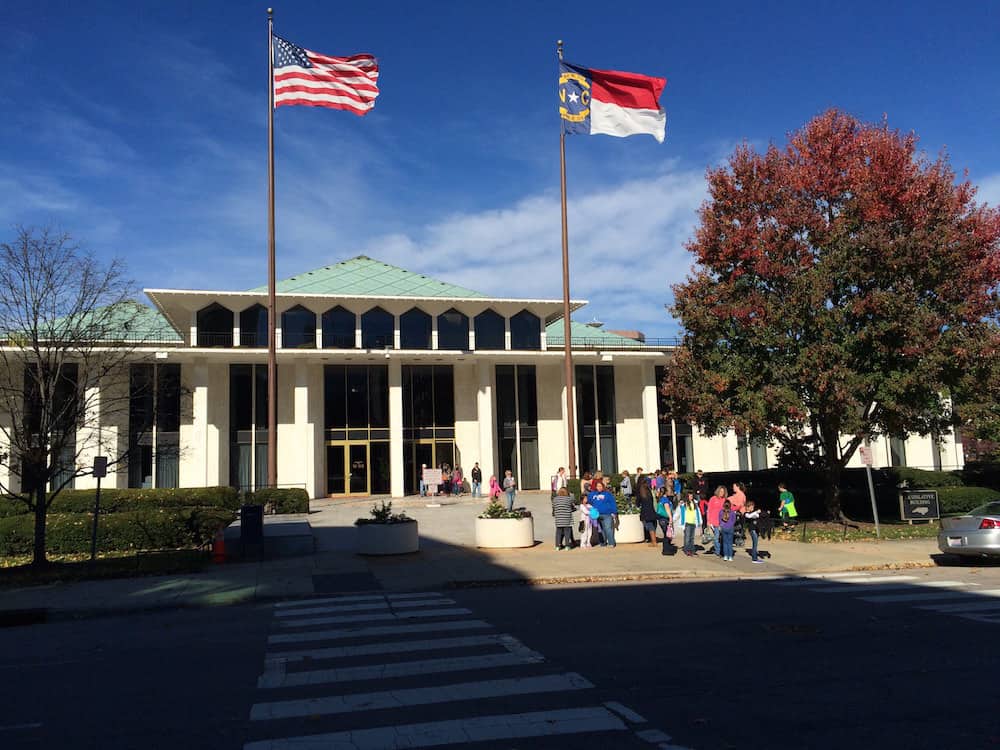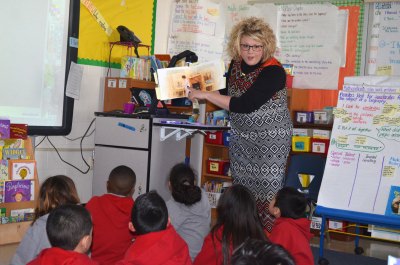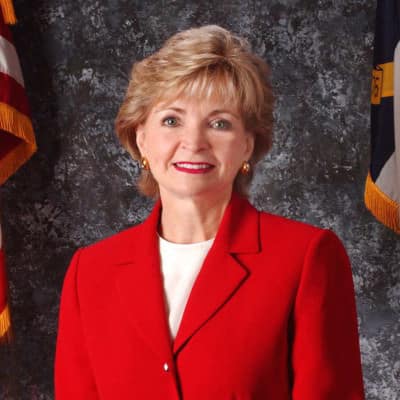
Last Wednesday was the first official day of the 2015 General Assembly, but it was mostly ritual, with only words to serve as representations of lawmakers’ intent on education. What they were willing to say, however, does give us some sense of where the Republican-controlled body may go.
Republican Rep. Paul Stam — No. 2 in the House — mentioned to me that pay differentiation and expansion of opportunity scholarships are two areas where we should expect some discussion from our elected leaders.
Both of those terms go by different names depending on who you’re talking to. Pay differentiation is one way of saying performance pay — paying teachers according to how well they do in the classroom. Currently, the state pay system for teachers is mainly aligned with experience: if you work this number of years, you get this amount of pay. Differentiation could change some of that. Instead of just looking at experience in the school system, results could mean higher or lower salaries.
“We’ll look at ways we can reward our best teachers.”
– Phil Berger
Senate leader, Republican Phil Berger, alluded to differentiation as well in a press conference later in the day. In response to a question about improving pay for veteran teachers, he said, “We’ll look at ways we can reward our best teachers.” He added that rewarding performance was the key way in which he thought the issue would be addressed.
Meanwhile, Berger reiterated a promise that lawmakers made last session to raise starting teacher pay to $35,000. Given the commitment already on the table, and the fact that the state is projected to have a shortfall of almost $200 million, it may be difficult to find a way to add pay differentiation to the roster of legislative priorities.
Terry Stoops, director of education studies at the John Locke Foundation, agrees that funding might be an issue. “While legislators clearly want to implement a differentiated pay plan, they need to ensure that the budget can sustain a long-term commitment to a fair and comprehensive system of performance and incentive pay,” he said. “I am not confident that the budget will cooperate this year.”
Tazra Mitchell, policy analyst at the North Carolina Justice Center Budget & Tax Center, says differentiation is possible, but at a cost.
“They’re going to have to find the money, and when we’re facing a budget shortfall, that just means cuts to other programs,” she said.
As for opportunity scholarships, which some call vouchers, it will be interesting to watch what the legislators do. The matter is on its way to the state Supreme Court in February. Republican lawmakers may be counting on a positive response from N.C.’s highest court, in which case they may be able to move forward with expansion.
Republican Lieutenant Governor Dan Forest used his closing remarks at the end of last Wednesday’s Senate session to reiterate the importance of digital learning in North Carolina schools.
Technology may also be an issue to watch this session. In 2013, the General Assembly passed legislation signaling its intent to transition schools away from paper textbooks to digital learning by 2017. The Friday Institute for Educational Innovation at North Carolina State University is working on a digital learning plan to help with that and already has some preliminary recommendations for the General Assembly. Republican Lt. Gov. Dan Forest used his closing remarks at the end of last Wednesday’s Senate session to reiterate the importance of digital learning in N.C. schools.
The State Board of Education recently heard from two vendors seeking to open virtual charter schools in the state, and of course, the state has its own virtual public school. Coupled with districts such as Guilford and the Mooresville Graded School District, which have already begun their own digital learning programs, all signs point to more technology in the classroom. The only question is how quickly it will happen and how much of a push the state General Assembly will make to move state schools along.
No doubt more education topics will rise to the surface after the session starts in earnest January 28th
One issue that school districts are probably hoping legislators address is local flexibility, particularly when it comes to school calendars. In short, some school systems want to be able to decide for themselves when school starts and stops for the summer, particularly when they have to make up for missed classes on snow days. The main opposition comes from the tourism industry, which counts on a predictable summer break to rake in the cash. Some Republican legislators are not thrilled with the idea of giving localities this flexibility, and unless that changes, we can probably expect summer break to remain as it has been and, possibly always will be.
The General Assembly is a living thing — evolving, unpredictable, and hard to pin in one place. No doubt more education topics will rise to the surface after the session starts in earnest January 28th, and I’m sure there will be surprises aplenty. I’ll be watching it all from the corners of committee rooms and through binoculars on the balconies. I’ll let you know what I spy.
Recommended reading



